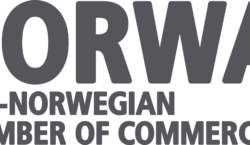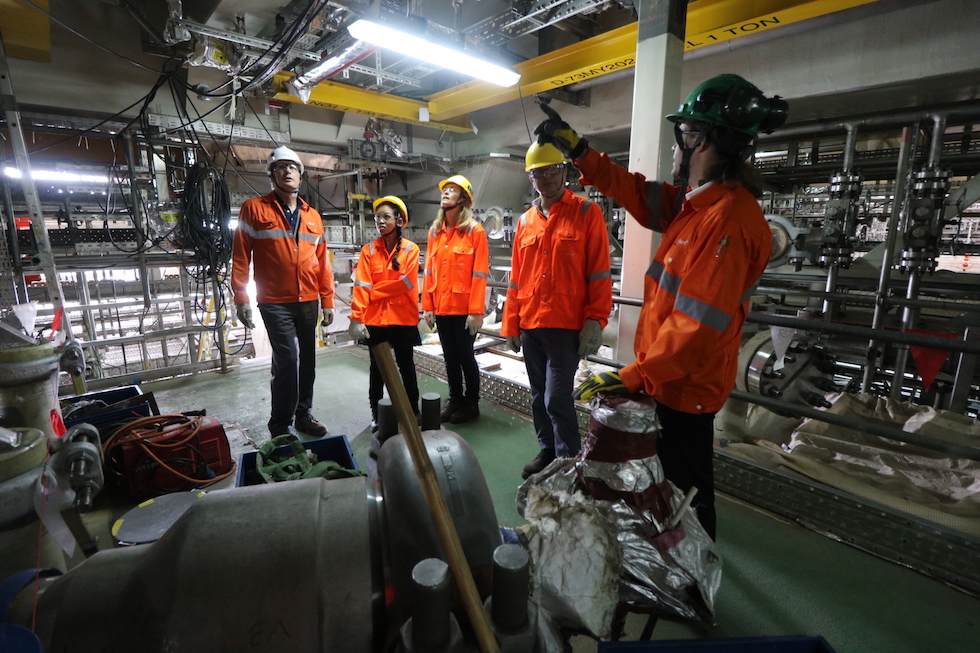
On Wednesday 14 June 2017, the Royal Norwegian Embassy in Thailand together with the Thai-Norwegian Chamber of Commerce, visited Norwegian companies Aibel and Jotun, both based in Laem Chabang. Both companies are cornerstones in the strong and growing economic relationship between Norway and Thailand, says the embassy.
The first visit was to Aibel’s engineering offices and gigantic construction yard for offshore oil production modules, strategically located beside Laem Chabang harbor, Thailand’s largest and deepest harbor. The yard opened in 1999, and allows Aibel to supply high quality modules at competitive rates.
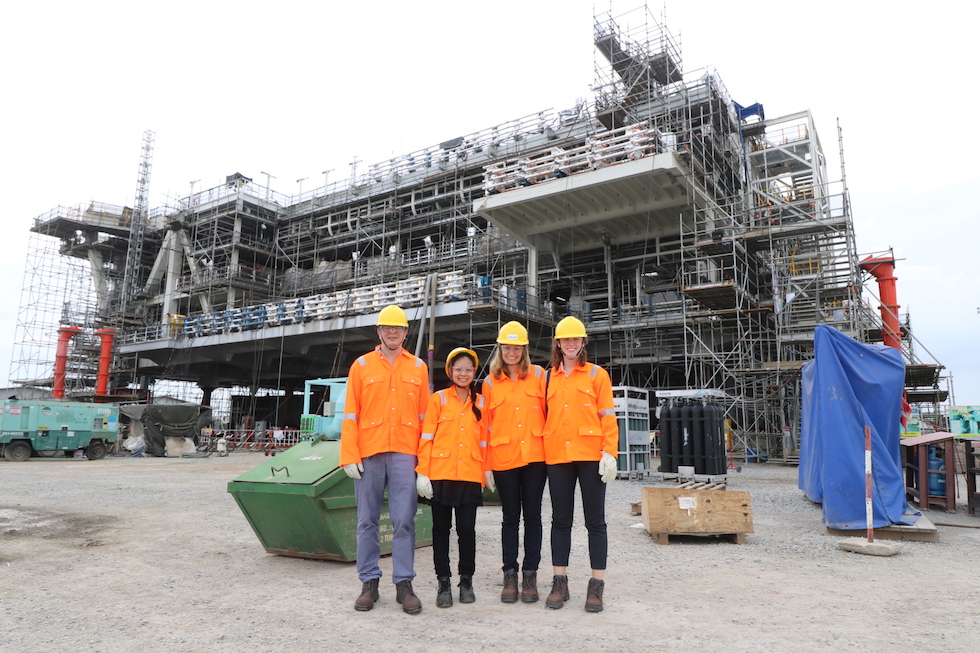
Aibel Thailand has specialized in modules for production vessels, FPSO, platforms and onshore plants. They employ close to 3000 people, counting both employees at Aibel’s own facilities and at Deeline, where Aibel is a 40 percent shareholder.
Aibel’s yard is the only yard in Thailand that also supplies topsides to the Norwegian continental shelf. The ongoing project that Team Norway got to take a closer look at is a module to be used in the Johan Sverdrup oil field. This is one of the five largest oil fields on the Norwegian continental shelf, and one of the most important industrial projects in Norway the next 50 years.
Aibel Thailand will ship the module from Laem Chabang 27 July, and the journey to Norway is set to take about one month.
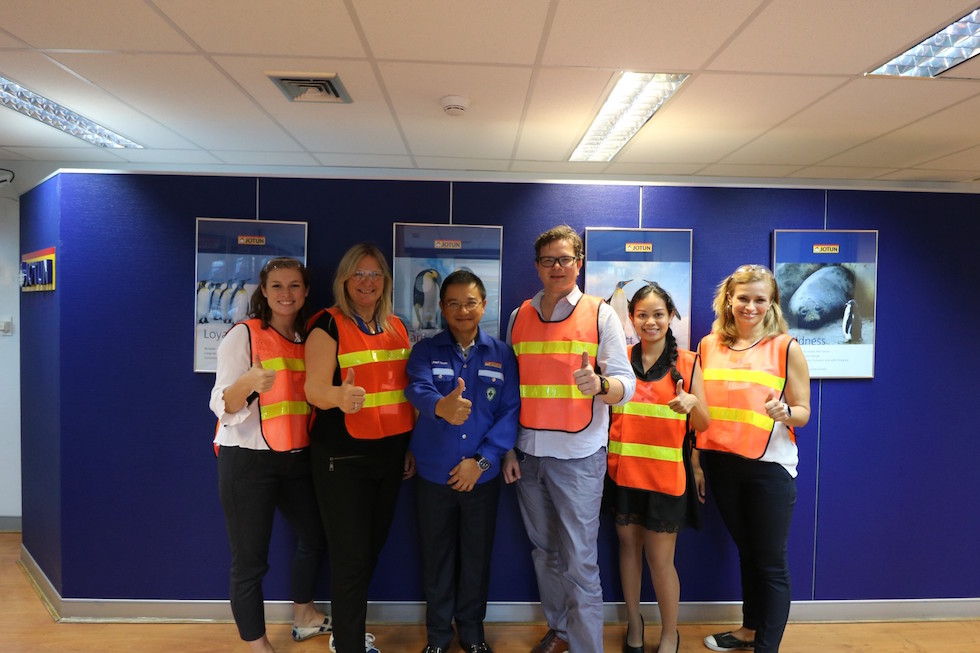
After visiting Aibel, Team Norway proceeded to paint and coating company Jotun’s factory. Jotun established itself in Thailand already in 1968, making it one of the first countries outside of Norway where the company expanded.
Their factory in Thailand now employs more than 300 people. Globally, Jotun has close to 10 000 employees. Their investment in Thailand and in the region continues to increase.
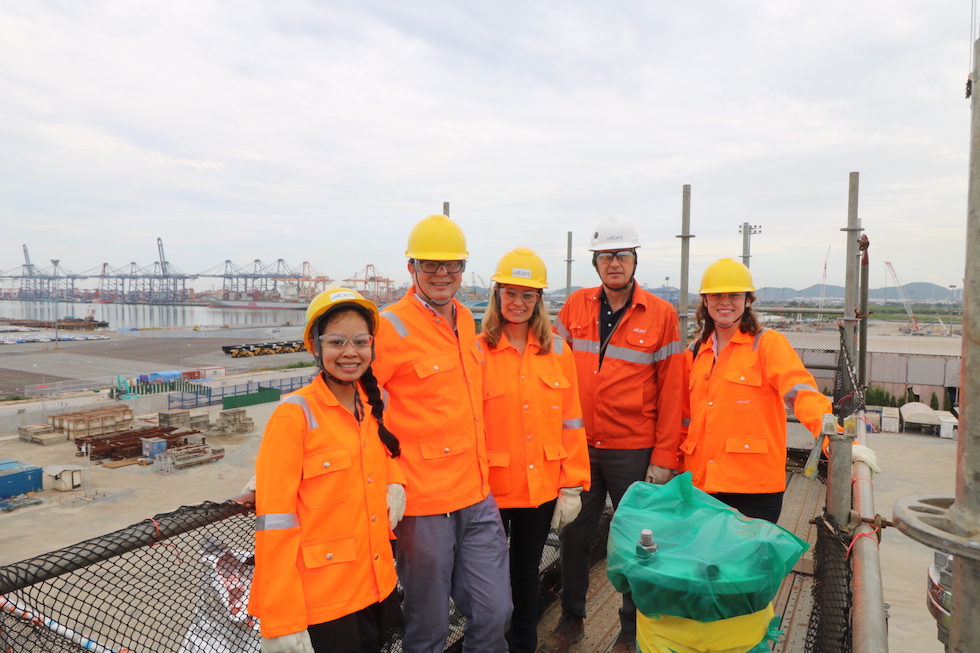
Contributing to the growth of the Thai economy comes with some responsibility to both people and planet. Team Norway learnt that both Aibel and Jotun share a deep passion for security and Corporate Social Responsibility, CSR. They both have extensive training programs for their personnel and strict safety regimes, resulting in very few and very minor injuries at their facilities.
The companies also have social responsibility at the heart of their operations, and compliance, labor rights, human rights, environment and social engagement are fields where they make a real and systematic effort.

